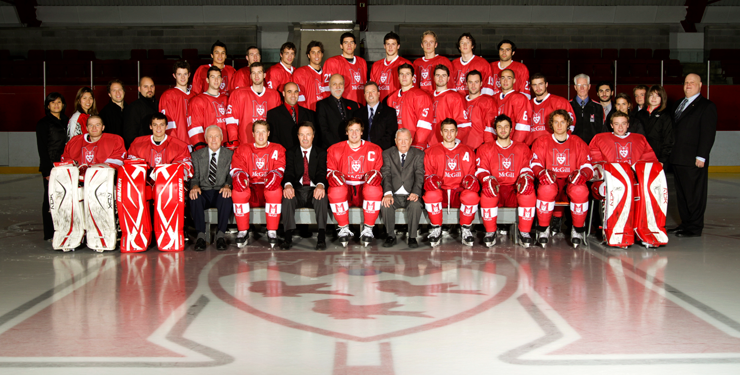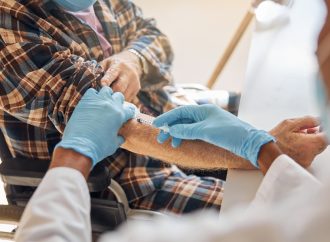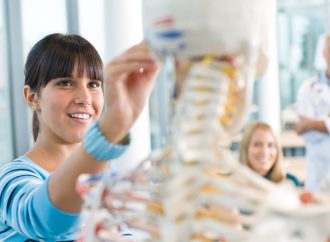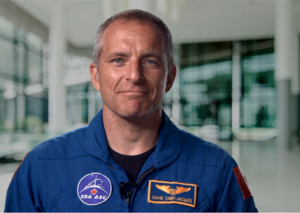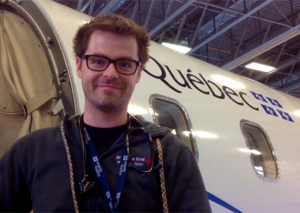Over the past years, sport medicine has been gaining in popularity among medical students. Who has not had trouble getting an elective in a sport medicine clinic? In order to discover more about this branch of family medicine, I had the opportunity to chat with Dr. Kathryn Sun who is a sport medicine physician at McGill.
She did her pre-medical year before completing medicine at McGill. After finishing her two year residency at the CLSC Côtes-des-Neiges in family medicine, she did a one year fellowship in sport medicine also at McGill.
Why did you choose family medicine and more specifically sport medicine?
“Throughout my life, I have always been involved in sports. I have been playing soccer since 1987 and I still play, but I also played on a lot of intramural sport teams in CEGEP and University.” During the basis of medicine course at McGill, she loved Unit 5 (the musculoskeletal system). However, she always knew that she wanted a practice where she could integrate her two passions, sports and medicine. That is exactly what sport medicine allows her to do! She loves the population that she sees in this branch, sport-oriented and athletic like her so she relates well to them. “I chose family medicine in particular because of the long term relationship that I create with my patients. I love the variety of cases that I see in my practice. There is no other specialty that gives you the flexibility to do several different things in your practice!”
What is your practice like today and what do you like about it?
Dr. Sun has quite a varied practice. She has a family medicine clinic in the West Island. As part of her Specific Medical Activities (AMPs), she works at the Short Stay Unit at the Montreal General Hospital. She is also a physician in the Non-Operative Orthopaedic clinic at the same hospital where she triages the referrals to orthopaedics, orders the appropriate work-up and takes care of the conservative management of patients. Dr. Sun practices at the Sport Medicine clinic at McGill and is the team physician for the McGill Redmen Men’s Hockey Team as well. She says that her practice allows her to see a great variety of cases from elderly people with chronic pain to high level athletes with different injuries. She likes the challenges because she always needs to adapt her decision depending on the context (e.g.: clinic versus live game).
What are the attributes needed to practice in this field?
Dr. Sun says that although you do not need to be “athletic” to practice sport medicine, you need an understanding of sport and the mentality of athletes. “You need to know what drives them and what their priorities are because they might not be the same as yours. You also need to be able to work in a multidisciplinary team. You have to deal with different personalities and expectations so you have to know how to handle that.”
Many of the problems that you see in family medicine are related to the musculoskeletal system. The Sport Medicine elective is a dynamic rotation with hands-on experience in physical exams and intra-articular injections!
What are the challenges faced in your practice?
Dr. Sun admits that one challenge in this branch is access to public resources, such as physiotherapy or a MRI. As mentioned above, she says that one of the challenges is that you may have to deal with multiple additional people when managing one athlete (e.g. parents, coach, physiotherapist). “They may not all have the same goals and expectations so you need to balance that when treating your patient”. There are also challenging injuries. She says that the best example is a concussion. “With a concussion, you only have symptoms; you do not have a tangible physical proof like a fracture on an X-ray. It is can be hard to convince athletes that this is a serious issue. The key is education. At the beginning of every season, we have pre-injury education for our Varsity athletes and we encourage them to be honest with us so we can help them have a successful season. ”
What is the training required to practice in this field?
In Quebec, only McGill University offers a third year of enhanced skills program in sport medicine after a two year residency in family medicine. It is called the Edmond Ricard Primary Care Sport Medicine Fellowship and was established in 1993. Time is spent at the McGill Sport Medicine clinic, including Varsity sport event coverage at the Montreal General Hospital Orthopaedic clinic and Pre-Operative clinic, and it allows you to do observerships with orthopaedic surgeons in the operating room if you are interested.
For more information on the program
For other programs offered across Canada
However, this fellowship does not allow you to work with athletes of a national or international level (e.g.: the Olympics). If you are interested in doing that, you need a diploma in sport medicine issued by the Canadian Academy of Sport and Exercise Medicine (CASEM). This requires that you pass an OCSE-like exam.
For more information on this exam and eligibility criteria
Do you have any advice for medical students who are interested in sport medicine?
“The key is to get exposed to sport medicine as early as you can. During your first years of medicine, ask to shadow a physician in a sport clinic. During clerkship, try to do an elective in this discipline. As soon as you know your schedule, call to reserve a place since it is a very popular elective. And it is not only relevant to sport medicine but also to family medicine in general. Many of the problems that you see in family medicine are related to the musculoskeletal system. The Sport Medicine elective is a dynamic rotation with hands-on experience in physical exams and intra-articular injections! If you are not able to book an elective in sport medicine, you can still participate in conferences related to this field or do an observership with a sport physician. The opportunities are numerous!”
Thank you Dr. Sun!
 Interview conducted by Carolina Capelle
Interview conducted by Carolina Capelle
McGill University





